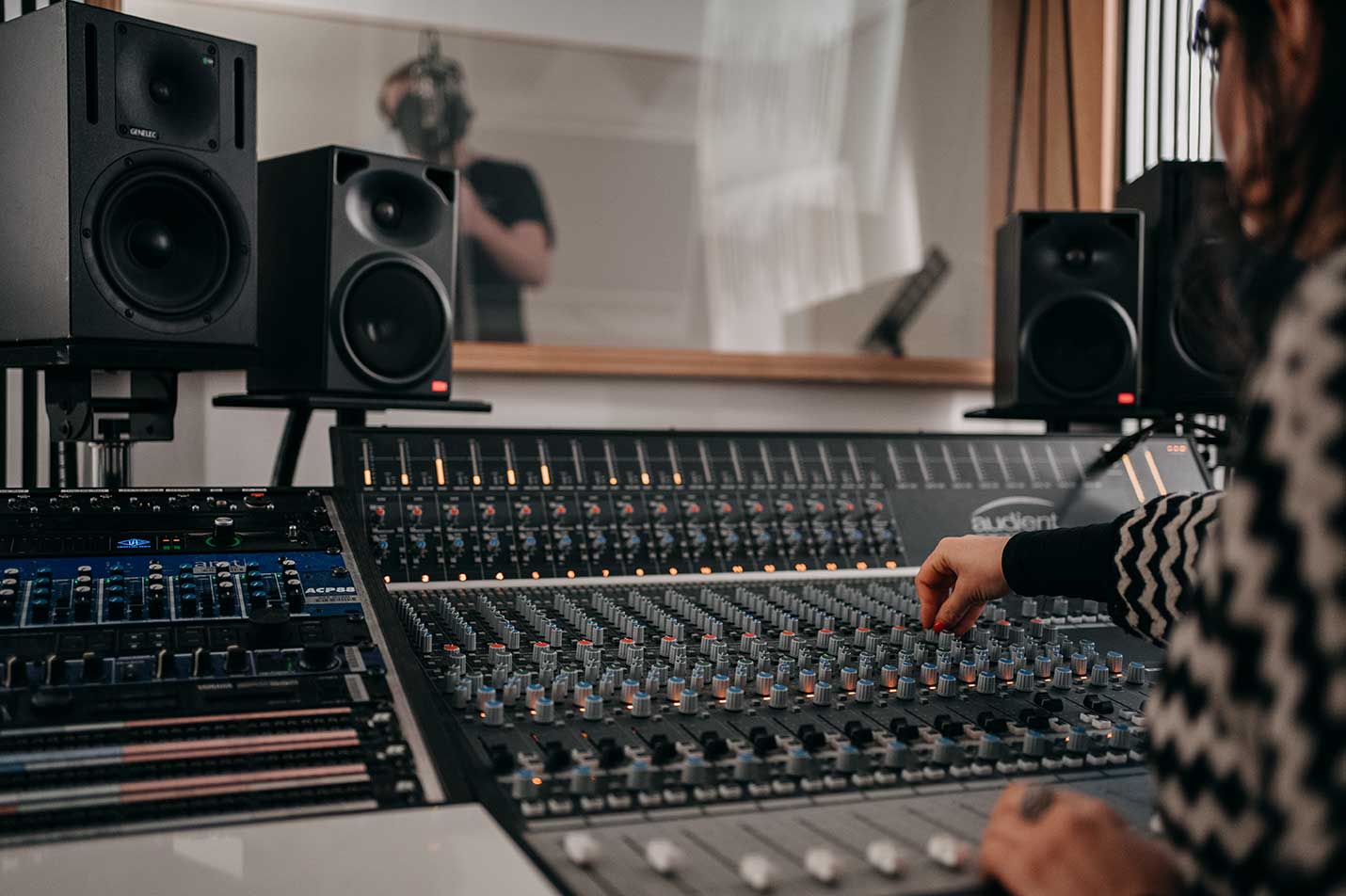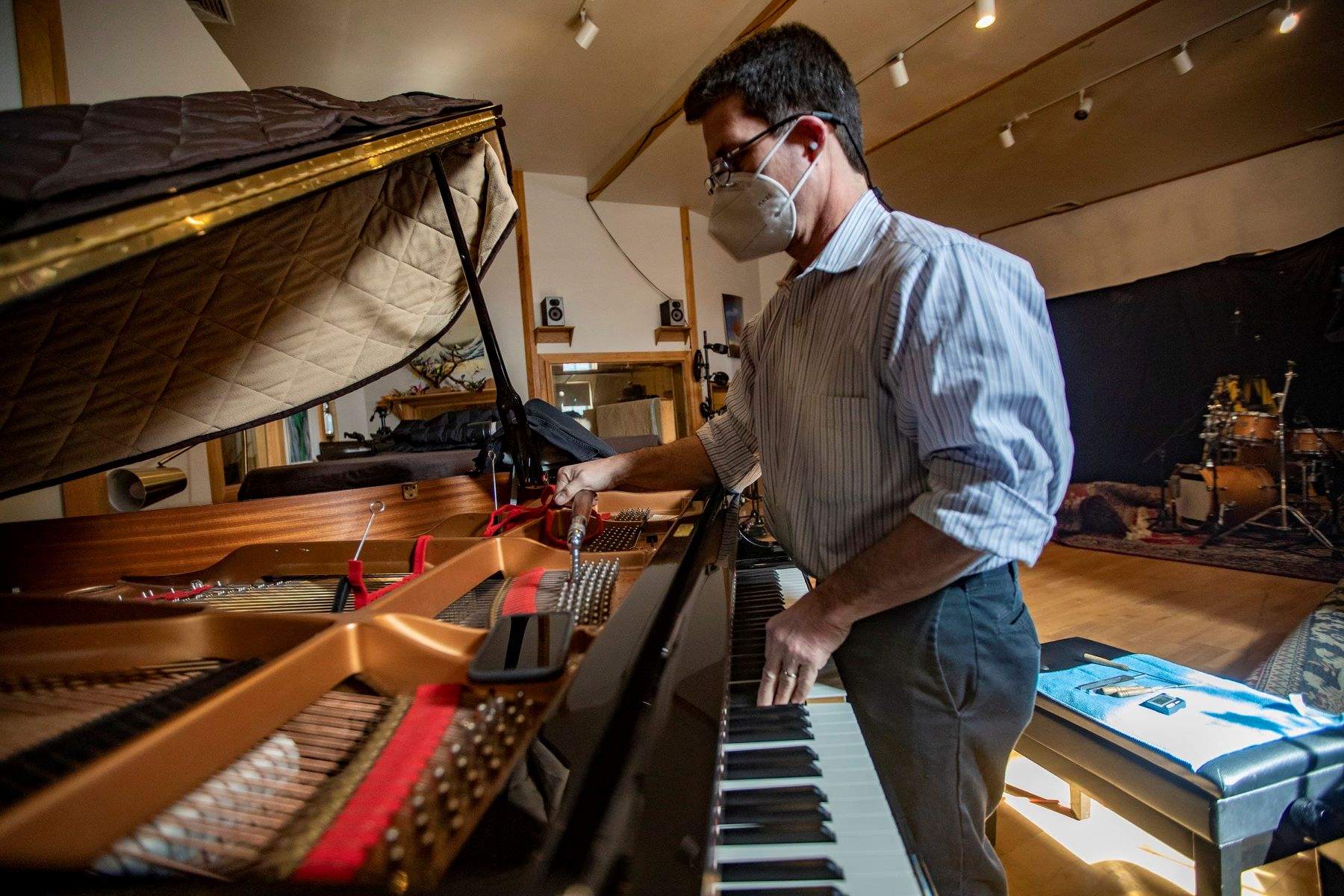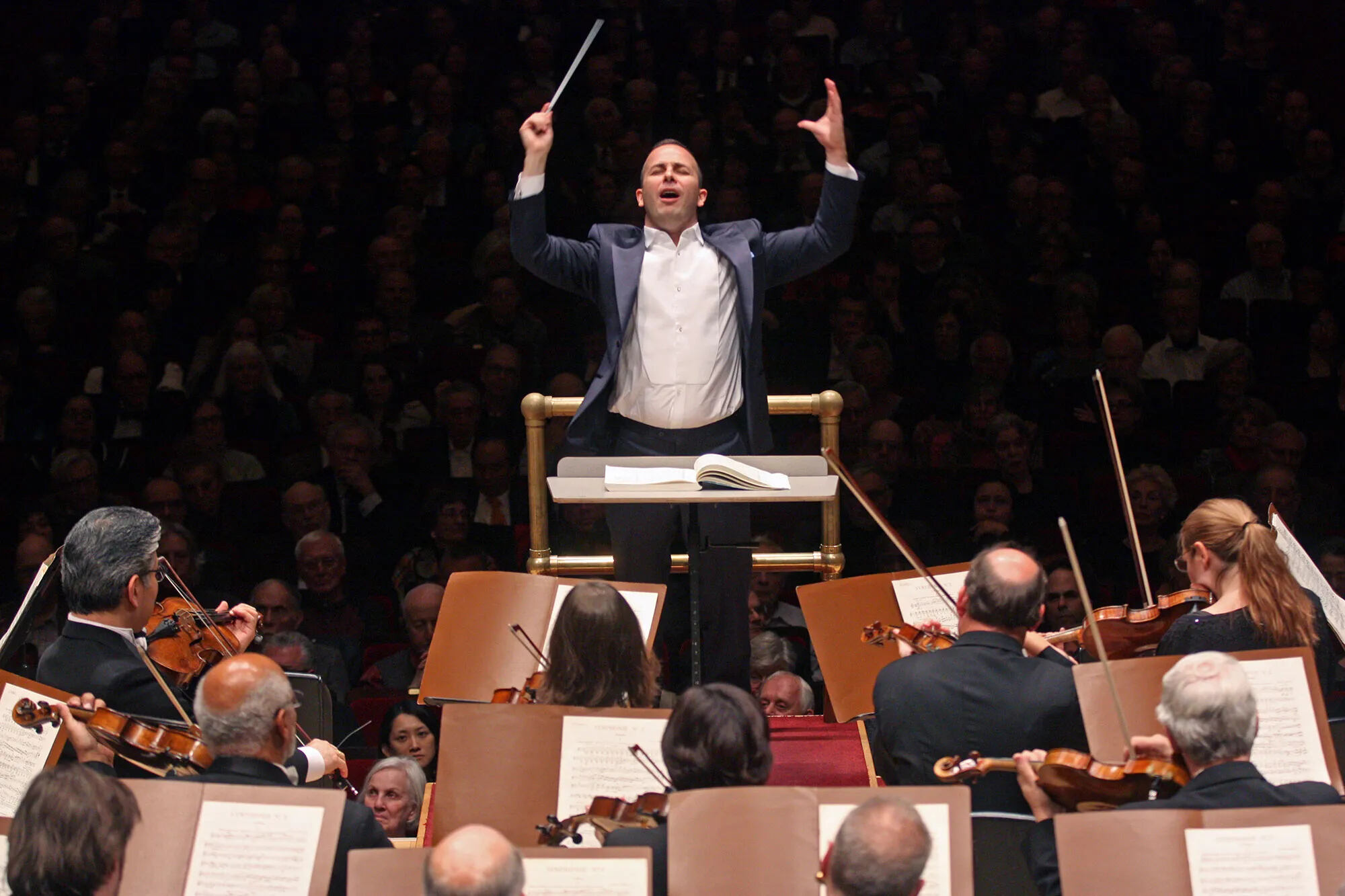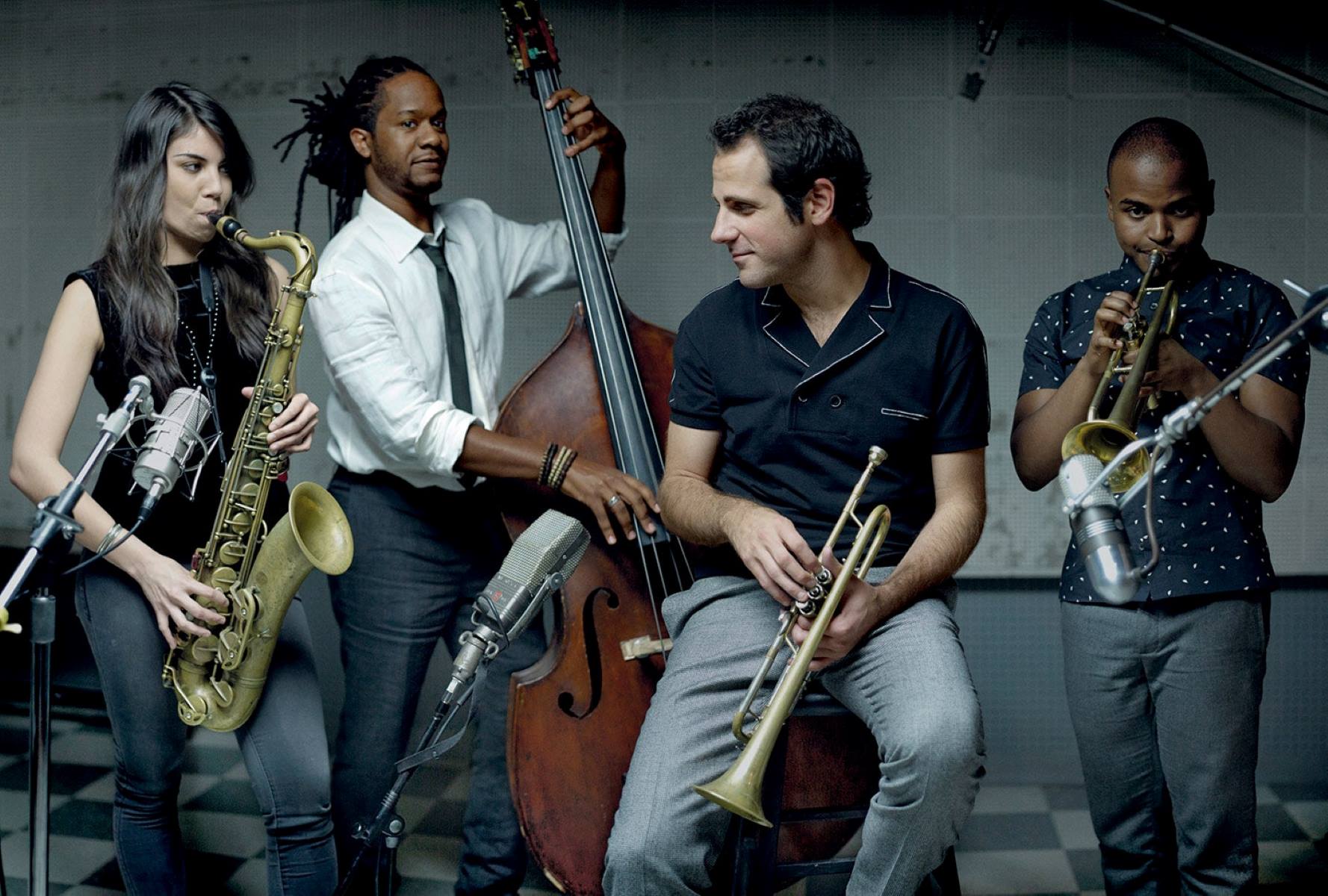Home>Production & Technology>Songwriter>How To Become Songwriter


Songwriter
How To Become Songwriter
Published: February 26, 2024
Learn the essential steps and skills to become a successful songwriter. Discover how to write compelling lyrics and captivating melodies to express your creativity.
(Many of the links in this article redirect to a specific reviewed product. Your purchase of these products through affiliate links helps to generate commission for AudioLover.com, at no extra cost. Learn more)
Table of Contents
- Introduction
- Discover Your Passion for Songwriting
- Study the Craft of Songwriting
- Develop Your Unique Style and Voice
- Collaborate with Other Songwriters and Musicians
- Learn to Play an Instrument
- Write, Rewrite, and Refine Your Songs
- Network and Build Relationships in the Music Industry
- Embrace Feedback and Continuously Improve
- Conclusion
Introduction
So, you want to become a songwriter? That's fantastic! Songwriting is a beautiful and rewarding craft that allows you to express your thoughts, emotions, and experiences through music and lyrics. Whether you're a seasoned musician or a complete novice, the journey to becoming a successful songwriter is an exciting and fulfilling one.
In this article, we will explore the essential steps to help you embark on this creative adventure and turn your passion for music and storytelling into compelling songs that resonate with audiences. From discovering your passion for songwriting to honing your skills and navigating the music industry, we'll cover everything you need to know to kick-start your songwriting journey.
Becoming a songwriter isn't just about writing catchy melodies and clever lyrics; it's about tapping into your innermost thoughts and feelings, finding your unique voice, and connecting with listeners on a profound level. It's a journey of self-discovery, creativity, and perseverance, and it's a journey well worth taking.
So, grab your notebook, tune your guitar, or sit down at the piano, and let's dive into the world of songwriting. Whether you dream of writing chart-topping hits, performing your own music, or simply sharing your songs with friends and family, this article will provide you with the knowledge and inspiration to set you on the path to becoming a skilled and confident songwriter. Let's embark on this musical adventure together and unleash the songwriter within you!
Discover Your Passion for Songwriting
Discovering your passion for songwriting is the crucial first step on your journey to becoming a songwriter. It's about recognizing the inner fire that ignites when you think about music, lyrics, and storytelling. For some, this passion may have been present since childhood, while for others, it may have emerged later in life. No matter when it surfaced, embracing and nurturing this passion is essential for your growth as a songwriter.
Passion for songwriting often stems from a deep love for music and a desire to communicate emotions, experiences, and ideas through the powerful medium of song. It's about finding joy in crafting melodies, weaving words together, and evoking emotions through your music. Perhaps you find yourself humming tunes or scribbling lyrics in your spare time, or maybe you're drawn to the storytelling aspect of songwriting, eager to share your narratives with the world.
To discover your passion for songwriting, take the time to reflect on what music means to you. Consider the songs that have left a lasting impact on your life, the lyrics that have resonated with your soul, and the melodies that have stirred your emotions. Explore different genres and styles, and pay attention to the songs that move you, inspire you, or make you want to sing along. These experiences can provide valuable insights into the type of songwriter you aspire to be and the emotions you wish to convey through your music.
Furthermore, immerse yourself in the creative process. Experiment with writing lyrics, composing melodies, or simply jotting down your thoughts and feelings. Engaging in these activities can help you gauge your level of enthusiasm for songwriting and uncover the themes and topics that ignite your creativity. Whether you find solace in introspective ballads, revel in upbeat anthems, or gravitate towards storytelling through music, recognizing these inclinations can guide you toward your unique songwriting path.
Ultimately, discovering your passion for songwriting is an introspective journey that involves exploring your relationship with music, lyrics, and self-expression. It's about recognizing the sparks of inspiration that fuel your creativity and embracing the emotional connection you have with the art of songwriting. By acknowledging and nurturing this passion, you lay a strong foundation for your growth as a songwriter, setting the stage for the exciting chapters that lie ahead in your musical odyssey.
Study the Craft of Songwriting
Studying the craft of songwriting is an essential step in your journey to becoming a proficient and insightful songwriter. While passion and creativity lay the groundwork for compelling music, understanding the technical aspects of songwriting elevates your work to new heights. It's about delving into the art and science of crafting songs, learning from established songwriters, and honing your skills to communicate your message effectively through music and lyrics.
To embark on this educational journey, immerse yourself in the rich tapestry of songwriting resources available. Dive into books, online courses, and workshops that offer valuable insights into song structure, melody composition, lyric writing, and the art of storytelling through music. Explore the works of renowned songwriters, dissecting their compositions to unravel the intricate techniques and nuances that make their songs resonate with audiences.
Moreover, consider seeking mentorship from experienced songwriters who can provide personalized guidance and constructive feedback on your compositions. Engaging in mentorship programs or collaborative songwriting sessions can offer invaluable opportunities to learn from seasoned professionals, gain fresh perspectives, and refine your approach to songwriting.
Furthermore, analyze a diverse range of songs across different genres, paying attention to the song structures, chord progressions, lyrical themes, and emotional impact. Deconstructing and studying the works of various songwriters can broaden your musical vocabulary, inspire new ideas, and deepen your understanding of the multifaceted art of songwriting.
In addition, familiarize yourself with music theory and its application in songwriting. Understanding fundamental concepts such as harmony, rhythm, and chord progressions empowers you to craft melodies that resonate with listeners and evoke powerful emotions. Whether through formal music theory studies or self-directed learning, acquiring a solid grasp of these principles enhances your ability to compose compelling and harmonious songs.
Ultimately, studying the craft of songwriting involves a continuous process of learning, exploration, and refinement. It's about embracing the rich tapestry of songwriting knowledge, drawing inspiration from diverse sources, and honing your skills to become a proficient and perceptive songwriter. By immersing yourself in the study of songwriting, you lay the groundwork for creating music that captivates, resonates, and leaves a lasting imprint on the hearts of listeners.
Develop Your Unique Style and Voice
Developing your unique style and voice as a songwriter is a transformative and deeply personal journey that sets you apart in the realm of music. It's about embracing your individuality, honing your artistic identity, and infusing your compositions with the distinct essence of who you are. In a world brimming with talented songwriters, cultivating a signature style and voice not only distinguishes your work but also establishes a profound connection between you and your audience.
To begin this creative odyssey, reflect on your musical influences, personal experiences, and cultural background. Consider the genres, artists, and songs that have left an indelible mark on your musical sensibilities. By acknowledging these influences, you can draw inspiration from them while forging a path that reflects your unique perspective and artistic vision.
Furthermore, explore different modes of self-expression, whether through introspective lyrics, evocative melodies, or innovative song structures. Embracing experimentation and pushing the boundaries of conventional songwriting enables you to carve out a distinctive niche in the musical landscape. It's about daring to be unconventional, infusing your compositions with authenticity, and fearlessly expressing the depth of your emotions and convictions.
Moreover, pay heed to your vocal delivery and songwriting style. Your voice, both literal and figurative, serves as a conduit for conveying your narratives and emotions. Whether your vocal timbre exudes warmth and vulnerability or resonates with power and conviction, embracing and refining your unique vocal attributes adds an unmistakable allure to your songs. Similarly, your songwriting style, be it poetic, narrative-driven, or emotionally charged, shapes the lyrical tapestry of your compositions, imprinting them with your distinct artistic fingerprint.
Additionally, embrace the power of vulnerability and honesty in your songwriting. Authenticity is the cornerstone of a compelling and enduring artistic identity. By fearlessly delving into your innermost thoughts, vulnerabilities, and triumphs, you infuse your music with a raw, unfiltered essence that resonates with the universal human experience.
Ultimately, developing your unique style and voice as a songwriter is an ongoing evolution, a journey of self-discovery, and a testament to the power of individual expression. It's about embracing your idiosyncrasies, infusing your compositions with sincerity, and crafting music that reflects the essence of who you are. By nurturing and refining your unique style and voice, you embark on a path that transcends mere songwriting, inviting listeners into a world that is distinctly, undeniably yours.
Collaborate with Other Songwriters and Musicians
Collaborating with other songwriters and musicians is a transformative and enriching experience that can elevate your songwriting journey to new heights. The synergy of creative minds coming together, each with their unique perspectives and talents, often results in music that transcends individual capabilities and resonates deeply with audiences.
One of the most compelling aspects of collaboration is the opportunity to tap into a diverse pool of creativity. Working with fellow songwriters and musicians introduces fresh ideas, innovative approaches, and alternative viewpoints, fostering a dynamic environment where creativity thrives. This collaborative exchange of ideas can spark inspiration, challenge conventional thinking, and lead to the creation of music that is rich, multi-dimensional, and emotionally resonant.
Furthermore, collaborating with others offers invaluable learning opportunities. Engaging with individuals who possess different skill sets, musical backgrounds, and artistic sensibilities broadens your horizons and deepens your understanding of the craft. Whether it's learning new songwriting techniques, exploring unfamiliar musical genres, or gaining insights into the nuances of performance and arrangement, each collaborative endeavor presents a platform for growth and enrichment.
Moreover, collaboration nurtures a spirit of camaraderie and mutual support within the music community. The bonds forged through collaborative projects often extend beyond the creative process, fostering enduring friendships and professional connections. These relationships can open doors to new opportunities, expose you to diverse audiences, and provide a network of support and encouragement as you navigate the intricacies of the music industry.
In addition, collaborative ventures offer a platform for skill refinement and experimentation. Working alongside proficient musicians and songwriters allows you to hone your craft, refine your musical instincts, and explore uncharted territories within your creative domain. The collaborative environment encourages risk-taking, innovation, and the exploration of unconventional ideas, empowering you to push the boundaries of your artistic expression.
Ultimately, collaborating with other songwriters and musicians is a profound and transformative experience that enriches your songwriting journey. It fosters a culture of shared creativity, mutual learning, and artistic evolution, propelling you toward the realization of music that is not only a reflection of individual artistry but a testament to the power of collaborative synergy.
Learn to Play an Instrument
Learning to play an instrument is a pivotal and transformative endeavor for aspiring songwriters. While songwriting often begins with lyrical ideas and melodies, possessing instrumental proficiency adds a profound dimension to the creative process. Whether it's the guitar, piano, violin, or any other instrument, mastering an instrument empowers songwriters to breathe life into their compositions, enriching them with nuanced musicality and emotive depth.
The journey of learning to play an instrument is a gateway to unlocking a world of musical possibilities. It immerses songwriters in the language of music, offering a deeper understanding of musical theory, harmony, and rhythm. By mastering an instrument, songwriters gain the ability to translate their melodic and harmonic visions into tangible musical arrangements, infusing their compositions with a captivating and expressive allure.
Moreover, instrumental proficiency enhances the songwriting process by fostering a deeper connection with the music being created. When songwriters can effortlessly translate their musical ideas onto an instrument, they gain a heightened sense of control and creativity, enabling them to explore a myriad of musical textures, tonalities, and arrangements. This fluency facilitates the seamless manifestation of intricate melodies, captivating chord progressions, and evocative harmonies, elevating the depth and sophistication of their compositions.
Furthermore, the act of learning an instrument nurtures discipline, patience, and perseverance, qualities that are invaluable in the pursuit of songwriting excellence. The dedication required to master an instrument cultivates a strong work ethic, enabling songwriters to tackle the complexities of composition with determination and resilience. It instills a sense of musical fluency that transcends technical proficiency, allowing songwriters to intuitively express themselves through their chosen instrument, whether it's the gentle strumming of a guitar, the cascading notes of a piano, or the soul-stirring melodies of a violin.
Ultimately, learning to play an instrument enriches the songwriting journey, providing songwriters with a powerful tool to articulate their musical visions with depth, emotion, and artistry. It fosters a profound connection with the language of music, empowering songwriters to craft compositions that resonate with authenticity, creativity, and musical finesse. As songwriters embrace the art of instrumental mastery, they embark on a transformative odyssey that enriches their creative expression and imbues their compositions with an indelible musical imprint.
Write, Rewrite, and Refine Your Songs
The process of writing, rewriting, and refining songs is the crucible in which raw creative ideas are forged into polished musical gems. It is a transformative journey that demands dedication, introspection, and an unwavering commitment to artistic excellence. As a songwriter, your ability to craft compelling and resonant songs hinges on your willingness to immerse yourself in the iterative process of creation, revision, and refinement.
Writing a song often begins with a burst of inspiration, a fleeting melody, or a poignant lyrical fragment. It is a moment of creative genesis, where ideas flow freely, unencumbered by self-doubt or inhibition. Capturing these initial sparks of creativity is essential, as they form the foundation upon which your song will be built. Whether it's a melodic motif that tugs at the heartstrings or a set of lyrics that encapsulate profound emotions, the act of capturing these raw elements sets the stage for the songwriting journey.
Once the initial ideas are captured, the process of rewriting comes into play. This phase is characterized by introspection, critical analysis, and a willingness to shape and mold the raw material into a cohesive and compelling narrative. It involves scrutinizing the lyrical content, evaluating the melodic structure, and refining the harmonic progressions to ensure that every element aligns harmoniously with the overarching theme of the song. This stage demands a discerning eye and an ear attuned to the nuances of musical expression, as it is here that the true essence of the song begins to emerge.
Refinement is the final crucible in which the song is polished to a lustrous sheen. It is a meticulous process that involves fine-tuning every aspect of the composition, from the cadence of the lyrics to the dynamics of the melody. Refinement demands an acute awareness of musical subtleties, an unwavering commitment to perfection, and an unyielding pursuit of artistic excellence. It is in this stage that the song is honed to its most exquisite form, ready to resonate with audiences on a profound emotional level.
In the realm of songwriting, the journey of writing, rewriting, and refining songs is a testament to the songwriter's dedication, creativity, and unwavering pursuit of artistic excellence. It is a transformative odyssey that demands resilience, introspection, and an unrelenting commitment to crafting music that transcends the ordinary and resonates with the extraordinary. As you embark on this journey, embrace the iterative process of creation, revision, and refinement, for it is within this crucible that your songs will be shaped into timeless works of art.
Network and Build Relationships in the Music Industry
Networking and building relationships in the music industry are integral components of a songwriter's journey toward success and recognition. In an industry driven by connections, collaborations, and opportunities, the ability to forge meaningful relationships with fellow musicians, industry professionals, and music enthusiasts can significantly impact a songwriter's career trajectory.
At the heart of networking in the music industry lies the cultivation of genuine and mutually beneficial connections. This involves actively engaging with peers, attending music events, and leveraging digital platforms to connect with like-minded individuals who share a passion for music and songwriting. By immersing oneself in the vibrant community of musicians, songwriters, and industry insiders, opportunities for collaboration, mentorship, and exposure abound.
Furthermore, building relationships with industry professionals, such as producers, managers, and music executives, can open doors to invaluable guidance, promotional opportunities, and access to a wider audience. Establishing a rapport with individuals who possess industry expertise and influence can provide songwriters with insights into navigating the complexities of the music business, refining their artistic vision, and gaining exposure in the competitive landscape of the industry.
In addition, fostering connections with fellow songwriters and musicians fosters a culture of support, collaboration, and creative exchange. Engaging in co-writing sessions, participating in music showcases, and collaborating on projects not only expands a songwriter's artistic horizons but also cultivates a network of peers who offer encouragement, feedback, and collaborative opportunities.
Moreover, leveraging digital platforms and social media to connect with fans, music enthusiasts, and industry professionals can amplify a songwriter's reach and impact. Engaging with audiences through live performances, online showcases, and interactive content fosters a loyal fan base and cultivates a community of supporters who champion the songwriter's music and artistic endeavors.
Ultimately, networking and building relationships in the music industry are pivotal in shaping a songwriter's career trajectory, fostering artistic growth, and unlocking opportunities for exposure, collaboration, and professional development. By actively engaging with the vibrant tapestry of the music community and forging meaningful connections, songwriters can navigate the intricacies of the industry, expand their artistic horizons, and propel their music toward broader recognition and resonance.
Embrace Feedback and Continuously Improve
Embracing feedback and committing to continuous improvement are indispensable tenets in the journey of a songwriter. The willingness to seek and incorporate feedback from peers, mentors, and audiences serves as a catalyst for artistic growth, refinement, and the elevation of one's craft. It is a testament to the songwriter's dedication to honing their skills, refining their artistic vision, and creating music that resonates deeply with listeners.
Feedback, whether constructive critique or effusive praise, offers invaluable insights into the impact and effectiveness of a songwriter's compositions. Embracing feedback entails cultivating an open-minded approach to receiving input, acknowledging areas for improvement, and leveraging feedback as a springboard for artistic evolution. It is an opportunity to glean diverse perspectives, identify strengths and weaknesses in one's work, and gain a deeper understanding of the emotional and sonic impact of one's music on audiences.
Moreover, embracing feedback fosters a culture of humility, adaptability, and receptivity to new ideas. It encourages songwriters to transcend their comfort zones, experiment with novel approaches, and explore uncharted creative territories. By internalizing feedback, songwriters embark on a transformative journey of self-discovery, introspection, and the continual refinement of their artistic expression.
Furthermore, the commitment to continuous improvement is a testament to the songwriter's unwavering pursuit of excellence. It involves a dedication to refining lyrical prowess, enhancing melodic inventiveness, and elevating the emotional resonance of compositions. The pursuit of continuous improvement propels songwriters to seek out new influences, study diverse musical genres, and embrace innovative songwriting techniques, fostering a dynamic and ever-evolving approach to their craft.
Ultimately, embracing feedback and committing to continuous improvement are the cornerstones of a songwriter's artistic odyssey. It is a reflection of the songwriter's resilience, adaptability, and unyielding pursuit of artistic excellence. By embracing feedback with humility and leveraging it as a catalyst for growth, and by committing to continuous improvement with unwavering dedication, songwriters embark on a transformative journey that transcends mere musical creation, propelling them toward the realization of music that is not only a reflection of individual artistry but a testament to the power of collaborative synergy.
Conclusion
In conclusion, the journey to becoming a songwriter is a transformative odyssey that encompasses passion, creativity, dedication, and a relentless pursuit of artistic excellence. It is a journey of self-discovery, collaboration, and continuous growth, where songwriters harness their unique voice, embrace the power of vulnerability, and craft music that resonates deeply with audiences.
Aspiring songwriters are encouraged to embark on this journey with an open heart and a willingness to explore the depths of their creativity. Discovering a passion for songwriting is the foundational step, as it ignites the spark that fuels the songwriter's creative spirit. It involves introspection, reflection, and an unwavering commitment to self-expression through music and storytelling.
Studying the craft of songwriting is an essential aspect of this journey, as it empowers songwriters to refine their skills, understand the nuances of musical composition, and draw inspiration from a diverse range of sources. Developing a unique style and voice is equally pivotal, as it distinguishes a songwriter's work and establishes a profound connection with listeners.
The significance of collaboration cannot be overstated, as it fosters a culture of shared creativity, mutual learning, and artistic evolution. Learning to play an instrument enriches the songwriter's musical vocabulary, providing a powerful tool for articulating their creative vision with depth, emotion, and artistry.
The iterative process of writing, rewriting, and refining songs is a crucible that shapes raw ideas into polished musical gems. It demands resilience, introspection, and an unwavering commitment to artistic excellence, propelling songwriters toward the creation of timeless works of art.
Networking and building relationships in the music industry are pivotal in shaping a songwriter's career trajectory, fostering artistic growth, and unlocking opportunities for exposure, collaboration, and professional development. Embracing feedback and committing to continuous improvement are indispensable tenets that propel songwriters toward the realization of music that transcends the ordinary and resonates with the extraordinary.
In essence, the journey to becoming a songwriter is a testament to the songwriter's dedication, creativity, and unwavering pursuit of artistic excellence. It is a transformative odyssey that demands resilience, adaptability, and an unyielding commitment to crafting music that resonates deeply with audiences. As songwriters embrace this journey with humility and unwavering dedication, they embark on a transformative odyssey that transcends mere musical creation, propelling them toward the realization of music that is not only a reflection of individual artistry but a testament to the power of collaborative synergy.











